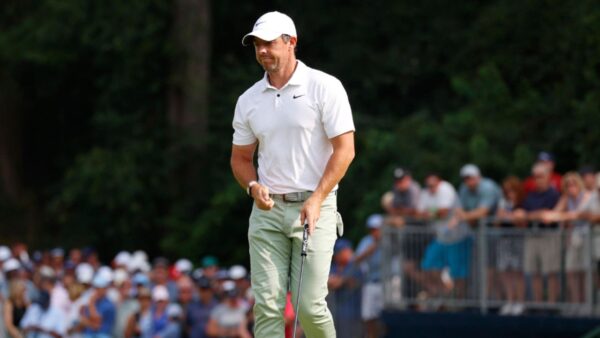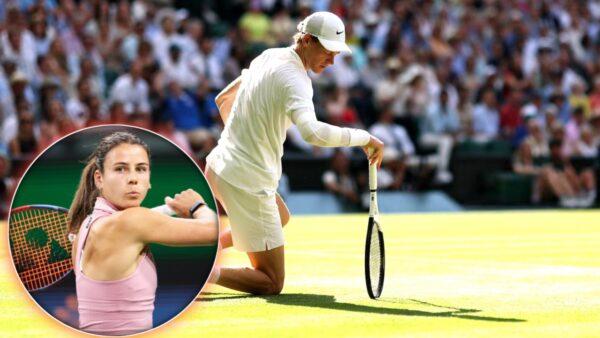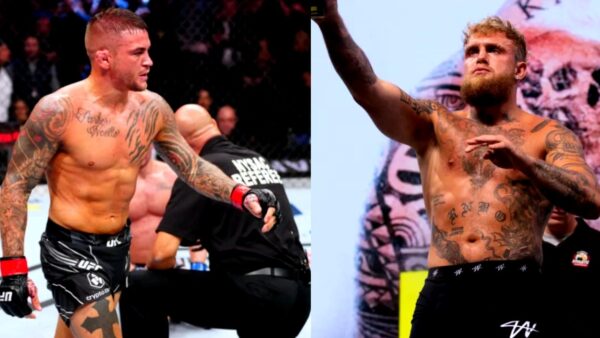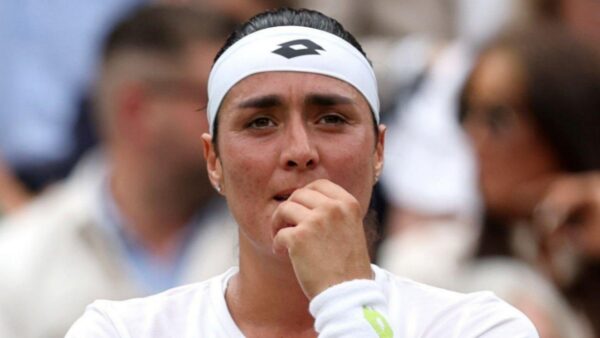Aryna Sabalenka Dismisses the Idea of Extending Women’s Matches to Five Sets in Grand Slams
Aryna Sabalenka came through her opening round match at Wimbledon.
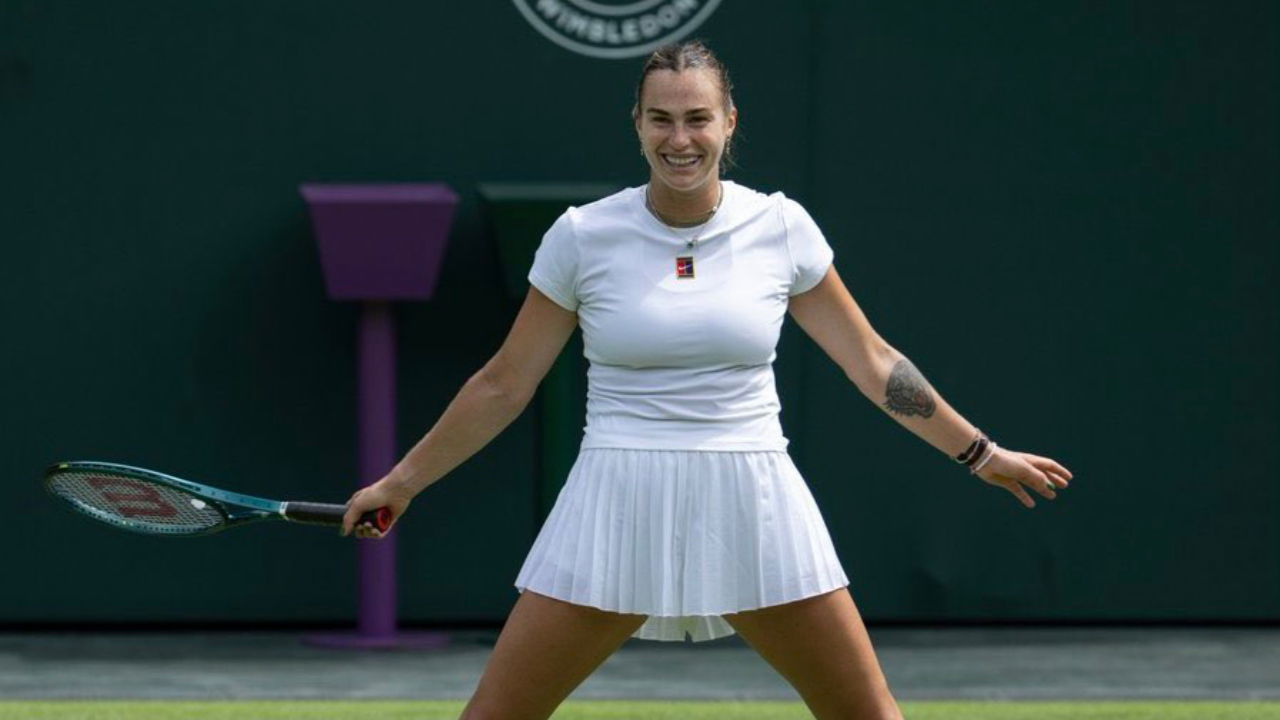
Aryna Sabalenka Wimbledon (via Wimbledon)
🔍 Explore this post with:
Aryna Sabalenka shared her thoughts on the format of women’s matches at Grand Slam events. She said she does not support the idea of switching to best-of-five sets. Her main concern is the potential increase in injuries that longer matches could bring.
Speaking at a press conference after her first-round win, the Belarusian responded to questions about the difference in match formats between men and women. She explained that playing five sets at Grand Slams could be physically demanding and may not benefit players on the WTA Tour.
I think probably physically I’m one of the strongest ones. Maybe it would benefit me. But I’m not ready to play 5 sets. I think it’s too much on the woman body. We are not ready for this amount of tennis. I think it would increase the amount of injuries. So this isn’t something I would consider. I’ll leave this for the guys to handle.
Sabalenka emphasized that maintaining the current best-of-three format is better for player health and performance. She believes that the intensity of women’s matches is already high and does not need longer formats to prove competitiveness.
Aryna Sabalenka says she doesn’t support the idea of best of 5 sets for women in Slams from the QF to the final, ‘I’m not ready to play 5 sets. I think it’s too much on the woman body… I think it would increase the amount of injuries’
— The Tennis Letter (@TheTennisLetter) June 30, 2025
“We just had an epic French Open men’s… pic.twitter.com/yfReC8uneA
Coco Gauff, the current World No. 2, echoed similar views over the weekend. She also voiced concern about the toll extended matches could take on players’ bodies and expressed support for keeping the current format in place.
Aryna Sabalenka advances at Wimbledon
World No.1 Aryna Sabalenka began her Wimbledon campaign with a convincing win over qualifier Carson Branstine. She dominated the match 6-1, 7-5 and needed just 73 minutes to reach the second round. The match was played on No. 1 Court during one of the hottest opening days in tournament history.
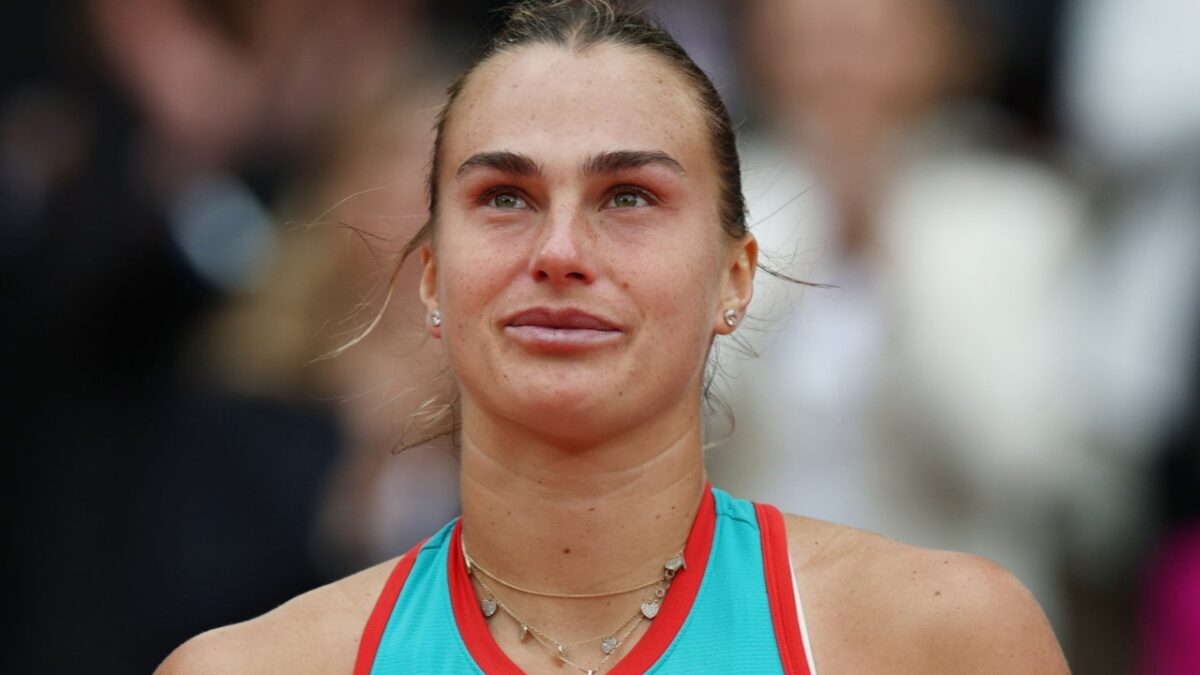
With temperatures soaring to 87°F, Sabalenka remained composed and focused. She showed why she’s considered one of the top contenders for the title this year. Her next opponent will be either Lulu Sun or Marie Bouzkova, with their match scheduled ahead of her Wednesday appearance.
Sabalenka has competed in only two of the past four Wimbledon events, but reached the semifinals both times. Many analysts view her as the top favorite this year, ahead of players like Iga Swiatek, Elena Rybakina, and Coco Gauff. Her power and consistency make her a serious threat on grass.
Although her three Grand Slam singles titles have all come on hard courts, Sabalenka recently made a strong run on clay. She reached the French Open final but lost to Gauff in three sets. Now, she’ll look to carry that momentum onto the grass in hopes of claiming her first Wimbledon crown.
How Aryna Sabalenka conquered Carson Branstine
The first set unfolded as expected when top-ranked Aryna Sabalenka faced World No. 194 Carson Branstine. The 24-year-old Canadian was playing her first Grand Slam main-draw match and aiming for just her second win at the WTA Tour level. She had impressed in qualifying, defeating top seed Lois Boisson and former US Open champion Bianca Andreescu.

Branstine managed just one game in the opening set, but found her footing in the second. She led 5-4 at one stage, raising hopes of a possible upset. However, Sabalenka responded quickly, winning six of the final seven games in just 24 minutes to close out the match.
Branstine showed more composure in the second set, particularly in her service games. But at 5-all, Sabalenka applied pressure by stepping inside the baseline. A key forehand error from Branstine handed Sabalenka the break, and she served out the match confidently.
Branstine ended the match with seven aces but struggled on second serve, winning less than half of those points. The Belarusian tallied 17 winners and 18 unforced errors, while Branstine recorded 17 winners and 26 errors. The qualifier showed promise but couldn’t overcome the power and experience of the World No. 1.

